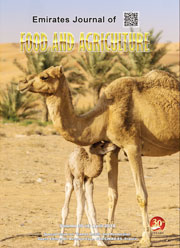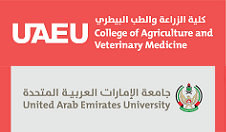Assessment of Camel Owners’ Knowledge and Practical Behaviors and its Implication on Environmental Sustainability
DOI:
https://doi.org/10.9755/ejfa.2023.3142Abstract
This study aimed to assess camel owners’ knowledge and practical behavior (KPB) in Saudi Arabia (KSA) and their implications on environmental sustainability. The study depended mainly on primary data. An online questionnaire survey was used to collect data from 267 respondents, in 2022. Descriptive and analytical techniques were used to achieve the stated objectives. Results revealed that, the majority of camels’ owners (91.7%) have low cumulative KPB, which was evident in their traditional practice and non-commercial methods in herd management. Moreover, large numbers of breeders do not sell their milk production due to their traditions, thus, about 23% of them gained no profits. Results also showed that, about 85% of owners were located in the lower level of using cost items (modern technology and labor training), accordingly, 96.6% fall within the low level of profit category. Likewise, about 75% of camels’ owners’ grazing behavior were located in the lower and medium level groups. Furthermore, the cumulative (KPB) effect of age, educational level, main job, training levels, cost of production and grazing behavior were found to be statistically significant in explaining CKPB variations of camels’ owners in KSA. The R-2 indicated that 59% of the variations in the dependent variable was explained by the variations of the independent variables. The also revealed the presence of high degree of positive association between camels’ owners’ CKPB and environmental sustainability. This study stresses on the importance of execution of sound agricultural extension programs and veterinary campaigns to improve camels’ owners’ CKPB.
Key words: Camel Raising, Environmental Sustainability, Grazing Behavior, Knowledge and Practical Behavior, KSA.
Downloads
Published
How to Cite
Issue
Section
Copyright (c) 2023 Ahmed Ismail Hussien Ismail, Mutasim Mekki Elrasheed, Marzook Al-Ekna, Mohammed Elhassan Seliaman

This work is licensed under a Creative Commons Attribution-NonCommercial 4.0 International License.










 .
. 